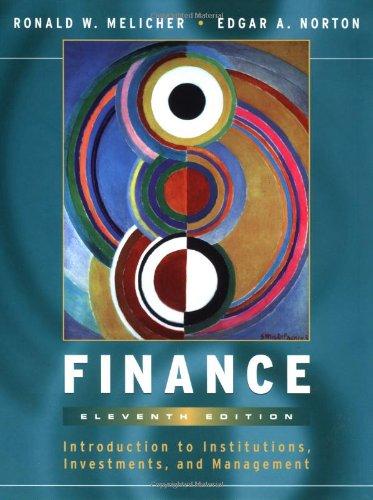An investor is in the 24% tax bracket and lives in a state with no income tax. He is tying to decide which of two bonds to purchase. One is a(a) 7.33% corporate bond that is selling at par, The other is a municlpal bond with a 5.21% coupon that is also selling at par. If all other featortes of these two bonds are comparable, which should the investor select? Why? Would your answer change if this were an in-state municipal bond and the investor lived in a place with high stale income taxes? Explain. If at cher leatures of these two bonds are comparable, which should the investor select? Why Would your answer change if this were an in-state municipal bond and the investor ilved in a place with high state income taxes? Explain. Which is the best selection? (Select the best cholice below.) A. The investor should select the corporate bond. Since the fuly taxable equivalent yeld of 5.21% is less than the 7.33% return on the corporate bond, the corporate issue offers a higher return and is the better buy. The decision very lkely would not change it this were an "in-state" municipal bond and the investor lived in a state with high income taxes. An "in-state" municipal bond would not shield the livestor from federal taxes or from high state income taxes. B. The investor should select the corporste bond. Sinse the fuly taxable equivalent yeld of 6.86% is less than the 7.33% return on the corporate bond, the corporato issue offors a higher return and is the betler buy. The decision very lkely would change if this were an "in-state" municipal bond and the imvestor lived in a state wath high income taxes. An "in-state" municipal bond would not only shieid the investor from federal taxes but also from high state income taxes. c. The investor should select the municipal bond. Since the fully taxable equivalent yeld of 5.21% is less than the 7.33% retum on the corporate bond, the municipal issue is the better buy. The decision very lkely would change if this were an "in-state" muricipal bond and the investor lived in a state with high income taxes. An "in-state" municipal bond would not only shield the investor from federal taxes but also from high state income taxes. D. The investor should select the municpal bond, Since the fully tawable equivalent yeld of 6.86% is less than the 7.33% raturn on the corporate bond, the municipal issue is the better buy. The desision very likely would change if this were an "in-state" municipal bond and the imvestor lived in a stase with high income taxes. An "in-state" municipal bond would not only shiald the investor from federal taxes but also from high state income taxes







